Say hello to Joy V. Spicer ! Last week I reviewed her most recent book, and now she’s the latest person to respond to my call for speculative fiction interview participants.
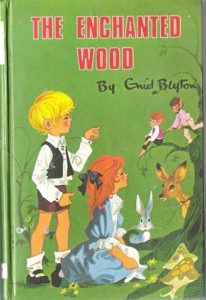 What was the first speculative story you ever remember reading?
What was the first speculative story you ever remember reading?
‘The Enchanted Wood’. It had a huge tree called the Faraway Tree which reached up into the clouds. All sorts of magical folk lived in the tree and right at the top, different lands would cycle through, stopping for about a week, if I remember correctly, before moving on. If you were visiting any of those lands, you’d have to make sure you left in time or be stuck on it forever.
Who is your favourite author? Why?
I don’t really have one favourite, but if its measured by the number of books I have for any one author, then it would have to be Stephen King.
What do you like most about the genre(s) you read?
My go-to genre has always been fantasy, but I also read other genres, including horror, historical fiction, thrillers and westerns. I love the worldbuilding when done well, believable characters I can relate to, and beautiful wordplay. With horror, I much prefer subtle scares, the kind that leaves you unsettled for days afterwards, like ‘The Woman in Black’, and where the story is set somewhere so ordinary, you wouldn’t expect to find anything horrifying.
More and more authors seem to be writing cross-genre stories these days. How do you feel about this trend?
It’s an interesting one, with great potential but, again, only if it’s done well.
If you could name a pet after one character, which character would you choose? Why?
My sons named their rabbits Sonic (she was fast!) and Wolverine (dopey bunny did not live up to that name). The first cats we had were named Cinder and Ashe, after a couple of comic book characters. The cats we have now aren’t named after characters. If I had a horse (wishing, hoping), I’d choose Elessar, Aragorn’s royal name; I love the way it feels when it’s said.
What fictional world would you never want to visit?
The Walking Dead! With zero survival skills, I’d have been eaten on day one!
What fictional world would you want to visit?
Middle Earth. I’d divide my time between Rivendell for its ethereal beauty and zen-like atmosphere, and Hobbiton for the food and to spend time in a hobbit-hole.
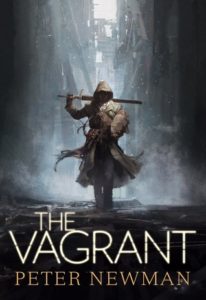 Sharing spoilers with people who haven’t read the book or seen the film/show is a hot topic on Twitter and across many fandoms. How do you feel about sharing or overhearing spoilers?
Sharing spoilers with people who haven’t read the book or seen the film/show is a hot topic on Twitter and across many fandoms. How do you feel about sharing or overhearing spoilers?
This is more for films/shows than books. I’m not a big fan, especially when no warning is given. I don’t even watch more than one trailer for a film. But if a film/show has been out for a while and I haven’t watched it yet, the onus is on me to steer clear; near-impossible with social media being so immediate.
Which series do you think should be made into a TV show or film next?
I’m always wary of books being made into films. If I had to choose, I’d say ‘The Vagrant’, but only the first book in the trilogy, which I enjoyed immensely. Sadly, the second book did nothing for me, which meant I didn’t even bother with the third.
Which TV show or film do you think should be turned into a book?
‘Grimm’. I enjoyed the series so much. I think turning that into a book series would give more scope to go deeper in exploring the characters and lore than the medium of TV allowed.
Bonus Questions
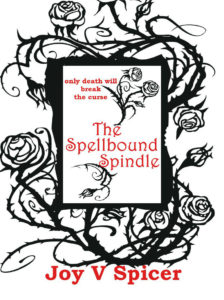 What is the most unusual or interesting way you’ve come up with an idea for one of your creative works?
What is the most unusual or interesting way you’ve come up with an idea for one of your creative works?
After I’d written my first book, I was convinced I didn’t have another book in me, so when the idea for my second book just popped into my head, it literally stopped me in my tracks. My subsequent projects are fairy tale retellings, like my third book, ‘The Spellbound Spindle’. I research (my most favourite part of writing!) the different variations of the tale, pick out key points then work on giving it a fresh twist.
Sometimes characters don’t do what their creators want them to do. If this has ever happened to you, how did you deal with it?
That’s something I’ve not experienced until now. Ready to start my next book, or so I thought, but I was really struggling. Until I realised this morning, the characters ‘want’ their status to be different! It is a strange feeling, realising the writer isn’t actually the omnipotent creator she thought she was.
What is your favourite trope?
To quote Stephen King, “ordinary people dealing with extraordinary situations”.
What tropes do you try to avoid in your stories?
Love triangles and insta-love. I’m positive love triangles don’t happen as often in real life as they seem to do in YA novels.
 About Joy: Originally from Malaysia, I’ve lived more than half my life in the UK. I started writing as a way to alleviate the boredom of work, hiding my notebook by the till, before realising how much I enjoy creating stories. My two sons still live with me and they make me proud and inspire me (sometimes make me jealous!) with their prodigious imaginations.
About Joy: Originally from Malaysia, I’ve lived more than half my life in the UK. I started writing as a way to alleviate the boredom of work, hiding my notebook by the till, before realising how much I enjoy creating stories. My two sons still live with me and they make me proud and inspire me (sometimes make me jealous!) with their prodigious imaginations.

 Say hello to Matthew! He signed up for my
Say hello to Matthew! He signed up for my  What fictional world would you never want to visit?
What fictional world would you never want to visit?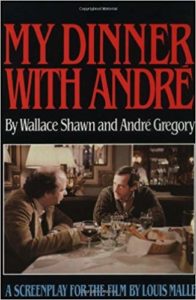 Which TV show or film do you think should be turned into a book?
Which TV show or film do you think should be turned into a book?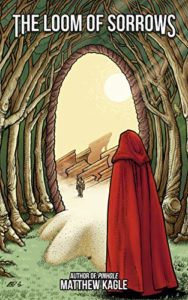 About Matthew: Matthew Kagle was born in 1972 and raised by his grandparents after his parents died in a car crash.
About Matthew: Matthew Kagle was born in 1972 and raised by his grandparents after his parents died in a car crash.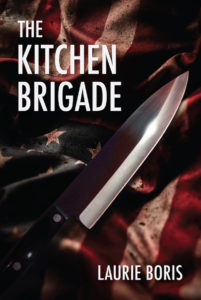 What is the most unusual or interesting way you’ve come up with an idea for one of your creative works?
What is the most unusual or interesting way you’ve come up with an idea for one of your creative works?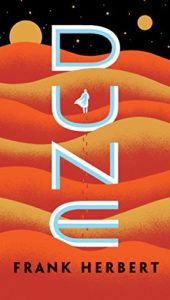 What fictional world would you want to visit?
What fictional world would you want to visit?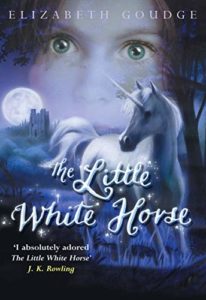 What was the first speculative story you ever remember reading?
What was the first speculative story you ever remember reading?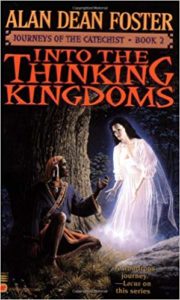 What fictional world would you want to visit?
What fictional world would you want to visit?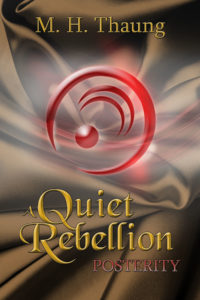 I don’t think any of my story ideas have had unusual sources of inspiration. Random generators are pretty helpful – cards and lists that you might use in RPGs or collaborative storytelling.
I don’t think any of my story ideas have had unusual sources of inspiration. Random generators are pretty helpful – cards and lists that you might use in RPGs or collaborative storytelling.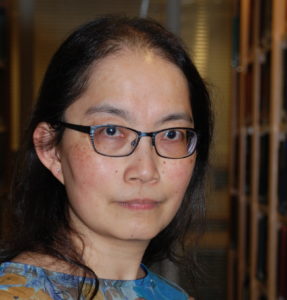 About M.H.: M. H. Thaung is a pathologist working in a laboratory in London, UK. It’s been over ten years since she cut up a dead body. She started writing for fun about four years ago, and since then it’s turned into an obsession—er, major hobby. She recently released A Quiet Rebellion: Posterity, the final book in her SF adventure/mannerpunk trilogy.
About M.H.: M. H. Thaung is a pathologist working in a laboratory in London, UK. It’s been over ten years since she cut up a dead body. She started writing for fun about four years ago, and since then it’s turned into an obsession—er, major hobby. She recently released A Quiet Rebellion: Posterity, the final book in her SF adventure/mannerpunk trilogy. 
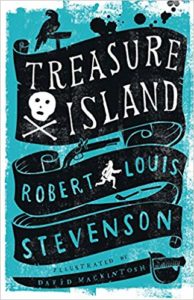
 Which series do you think should be made into a TV show or film next?
Which series do you think should be made into a TV show or film next?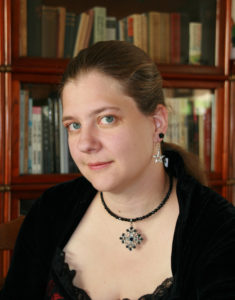 About Chris:
About Chris: Say hello to Leah! She responded to my call for
Say hello to Leah! She responded to my call for  Who is your favourite author? Why?
Who is your favourite author? Why?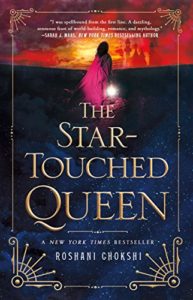 What fictional world would you want to visit?
What fictional world would you want to visit? About Leah:
About Leah: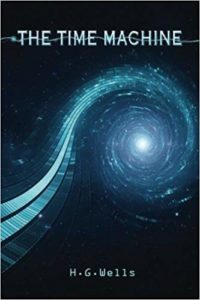 What was the first speculative story you ever remember reading?
What was the first speculative story you ever remember reading? Love it! As I mentioned, mix humor and/or mystery into a SciFi or Fantasy, then lead me to the cash register. I think it’s apt to call it a trend, or better yet a growing trend, since cross-genre stories have been around for quite some time. I immediately think of Isaac Asimov’s Robot Trilogy which featured a human detective learning to work with a robot partner – classic SciFi reflecting on human societal structures. I mentioned Christopher Moore earlier. He can take a mythology, shake it upside down and have you laughing all the way through.
Love it! As I mentioned, mix humor and/or mystery into a SciFi or Fantasy, then lead me to the cash register. I think it’s apt to call it a trend, or better yet a growing trend, since cross-genre stories have been around for quite some time. I immediately think of Isaac Asimov’s Robot Trilogy which featured a human detective learning to work with a robot partner – classic SciFi reflecting on human societal structures. I mentioned Christopher Moore earlier. He can take a mythology, shake it upside down and have you laughing all the way through.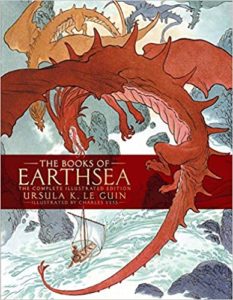 I wouldn’t want to restrict it to series. One substantial book could make a decent season or even two (e.g. The Handmaid’s Tale). Although in the opposite direction, they squeezed the Earthsea books down into one animation. A good animation, but I wasn’t happy. I would have voted for that. It goes without saying “if done correctly”, but I would love to see Asimov’s Foundation trilogy, or even better, Zelazny’s Nine Princes in Amber. By the way, I heard rumor that his Lord of Light has been optioned.
I wouldn’t want to restrict it to series. One substantial book could make a decent season or even two (e.g. The Handmaid’s Tale). Although in the opposite direction, they squeezed the Earthsea books down into one animation. A good animation, but I wasn’t happy. I would have voted for that. It goes without saying “if done correctly”, but I would love to see Asimov’s Foundation trilogy, or even better, Zelazny’s Nine Princes in Amber. By the way, I heard rumor that his Lord of Light has been optioned.
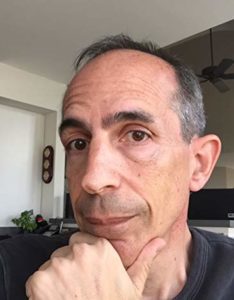 Richard L Pastore is the author of the comedy-fantasy, The Devil and the Wolf (available on Amazon). His newest project is tentatively titled: Perseus Kills His Grandfather.
Richard L Pastore is the author of the comedy-fantasy, The Devil and the Wolf (available on Amazon). His newest project is tentatively titled: Perseus Kills His Grandfather. What was the first speculative story you ever remember reading?
What was the first speculative story you ever remember reading?
 About: Tammy Schoch is a psychiatric nurse who lives in the United States with her husband. She taught her children to love science fiction, and they taught her the importance of avoiding spoilers on social media.
About: Tammy Schoch is a psychiatric nurse who lives in the United States with her husband. She taught her children to love science fiction, and they taught her the importance of avoiding spoilers on social media. 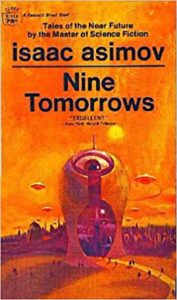 What was the first speculative story you ever remember reading?
What was the first speculative story you ever remember reading?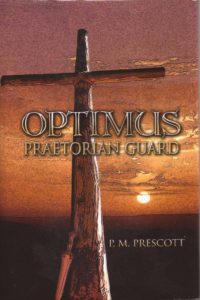 More and more authors seem to be writing cross-genre stories these days. How do you feel about this trend?
More and more authors seem to be writing cross-genre stories these days. How do you feel about this trend?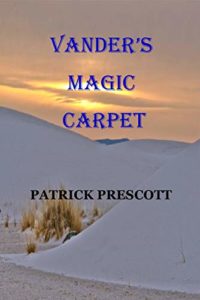 What is the most unusual or interesting way you’ve come up with an idea for one of your creative works?
What is the most unusual or interesting way you’ve come up with an idea for one of your creative works? About Patrick: I’m a retired English/History educator. When I started
About Patrick: I’m a retired English/History educator. When I started 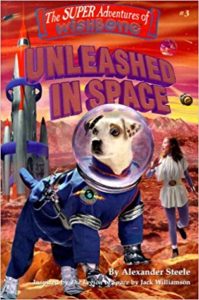 What was the first speculative story you ever remember reading?
What was the first speculative story you ever remember reading? 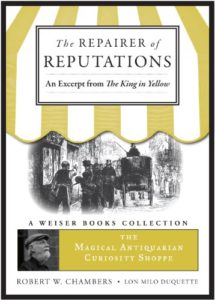 Which series do you think should be made into a TV show or film next?
Which series do you think should be made into a TV show or film next? 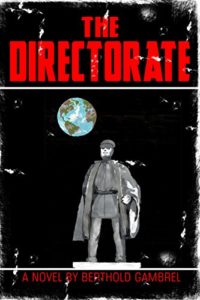 What is the most unusual or interesting way you’ve come up with an idea for one of your creative works?
What is the most unusual or interesting way you’ve come up with an idea for one of your creative works?  About:
About: